Artificial Intelligence (AI) has become a ubiquitous presence in our lives, permeating various industries and transforming the way we interact with technology. From voice assistants to self-driving cars, AI has already demonstrated its potential to revolutionize the world as we know it. However, the advancements we have witnessed thus far are merely the tip of the iceberg, and the future of AI holds even more remarkable possibilities.
As we delve into the intricacies of this rapidly evolving field, it becomes evident that AI is not just a technological novelty; it is a fundamental shift in our approach to problem-solving and decision-making. The future of AI promises to reshape industries, redefine the nature of work, and potentially alter the course of human civilization itself.
The Evolution of AI
To truly appreciate the future of AI, we must first understand its origins and the remarkable journey it has undertaken thus far. The concept of intelligent machines dates back centuries, existing primarily in the realm of mythology and speculation. However, it wasn’t until the mid-20th century that the term “artificial intelligence” was coined, and the field began to take shape.
The early years of AI were dominated by the study of neural networks, laying the foundation for the development of machine learning algorithms. In the subsequent decades, machine learning applications gained traction, paving the way for the more nuanced concept of deep learning. Each advancement built upon the previous one, propelling AI from a theoretical concept to a practical reality.
Today, AI has transcended its initial boundaries and has become an integral part of our daily lives. From recommendation systems that personalize our online experiences to natural language processing that powers virtual assistants, AI has woven itself into the fabric of modern society.
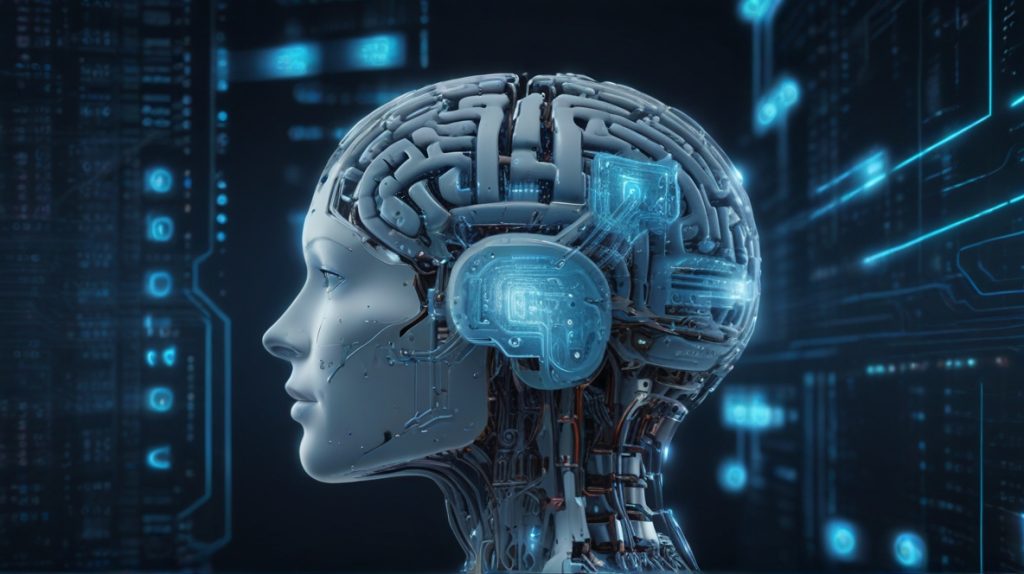
Perception vs Reality
Despite the rapid advancements in AI, there remains a persistent gap between perception and reality. Popular culture has often portrayed AI as a force to be feared, with robots and intelligent systems depicted as antagonists hell-bent on subjugating humanity. These narratives have fueled misconceptions and fostered a sense of distrust towards AI among the general public.
However, the truth is that AI is a powerful tool designed to enhance human capabilities and boost productivity. It is not a sentient being with malicious intentions but rather a sophisticated algorithm trained to perform specific tasks with unprecedented efficiency and accuracy.
One of the most significant challenges facing the future of AI is dispelling these myths and fostering a more accurate understanding of the technology. By educating the public about the true nature of AI and its potential benefits, we can pave the way for widespread acceptance and responsible implementation.
The impact of AI on the workplace
One of the most significant impacts of AI will be felt in the realm of work. As AI continues to advance, it will inevitably lead to the automation of various tasks and processes, disrupting traditional employment models and requiring a fundamental rethinking of the workforce.
While some fear that AI will render human labor obsolete, the reality is more nuanced. AI is not a replacement for human intelligence but rather a complement to it. The future of work will likely involve a symbiotic relationship between humans and AI, where machines take on mundane and repetitive tasks, freeing up humans to focus on more complex, creative, and strategic endeavors.
However, this transition will not be without its challenges. As certain jobs become automated, there will be a need for widespread reskilling and upskilling initiatives to ensure that workers possess the necessary skills to thrive in the AI-driven economy. Industries will need to adapt their training programs, and educational institutions will need to revamp their curricula to prepare students for the jobs of the future.
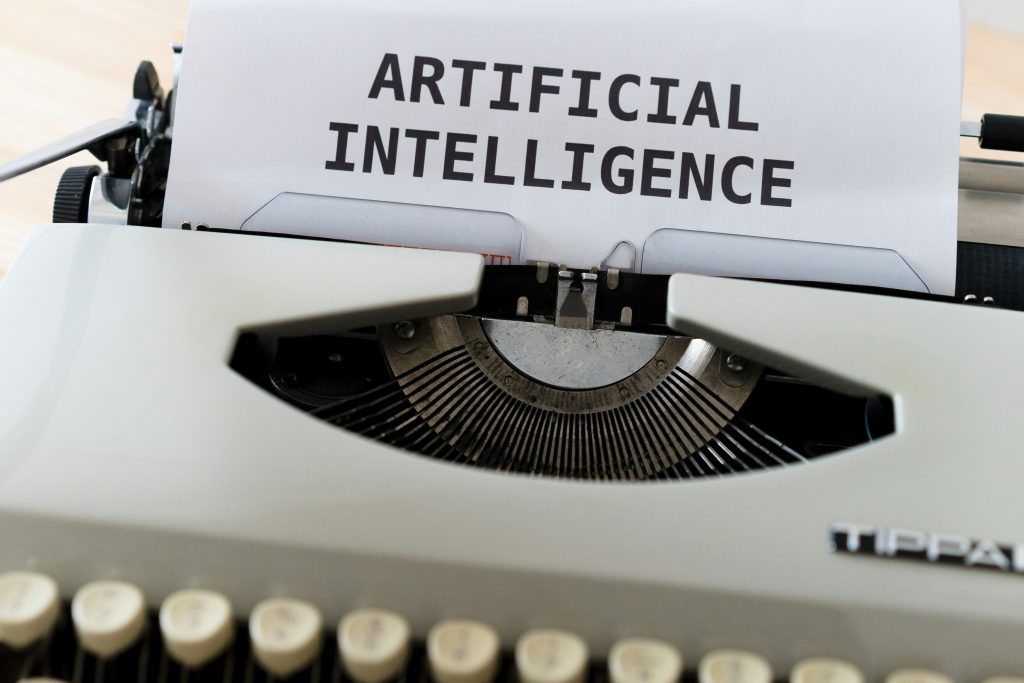
Moreover, the impact of AI on the workplace will extend beyond just automation. AI-powered decision-making tools will enhance productivity and efficiency, enabling organizations to make data-driven decisions with unprecedented speed and accuracy. Collaborative AI systems will facilitate seamless communication and coordination between teams, transcending geographical boundaries and enabling truly global collaboration.
A report by the World Economic Forum titled “The Future of Jobs Report 2020” highlights the potential impact of AI on the workforce, stating that by 2025, 85 million jobs may be displaced by a shift in the division of labor between humans and machines. However, the report also predicts that 97 million new roles may emerge that are more adapted to the new division of labor between humans, machines, and algorithms [1].
AI and the Future of Healthcare
One of the most promising applications of AI lies in the field of healthcare. AI has the potential to revolutionize the way we diagnose and treat diseases, ushering in a new era of personalized medicine and preventative care.
Imagine a future where AI-powered diagnostic tools can analyze complex medical data, including genetic information, imaging scans, and patient histories, to identify potential health risks and recommend personalized treatment plans. This level of precision and personalization could significantly improve patient outcomes and reduce the burden on healthcare systems.
Furthermore, AI-driven drug discovery and development processes could accelerate the pace of innovation, leading to faster and more effective treatments for a wide range of conditions. By analyzing vast amounts of data and identifying patterns that may be overlooked by human researchers, AI can streamline the drug development process and increase the chances of successful clinical trials.

In addition to its therapeutic applications, AI can also play a crucial role in disease prevention and public health initiatives. By analyzing large datasets, AI algorithms can identify potential disease outbreaks and predict the spread of illnesses, allowing healthcare professionals to take proactive measures and mitigate the impact of epidemics.
A study published in the journal Nature Biotechnology highlights the potential of AI in drug discovery, suggesting that AI-powered methods can significantly reduce the time and costs associated with developing new drugs [2]. Another study published in the journal Radiology found that AI algorithms can match or even outperform radiologists in detecting certain types of cancer from medical images [3].
AI and the Future of Education
Education is another domain poised for significant transformation by AI. The traditional classroom model, which has remained largely unchanged for centuries, may soon give way to personalized, adaptive learning experiences powered by AI.
Imagine an AI-driven tutoring system that can analyze a student’s learning style, strengths, and weaknesses, and tailor the educational content and delivery method accordingly. Such a system could provide real-time feedback, adjust the pace and difficulty of the material, and even suggest customized learning strategies to optimize the student’s understanding and retention.
Furthermore, AI-powered virtual assistants and educational chatbots could provide 24/7 support and guidance to students, answering their questions, clarifying concepts, and providing personalized support whenever needed.
Beyond the realm of personalized learning, AI could also revolutionize the way educational content is created and delivered. AI-driven content generation tools could produce customized learning materials, adapting to the specific needs and preferences of individual students or classrooms.
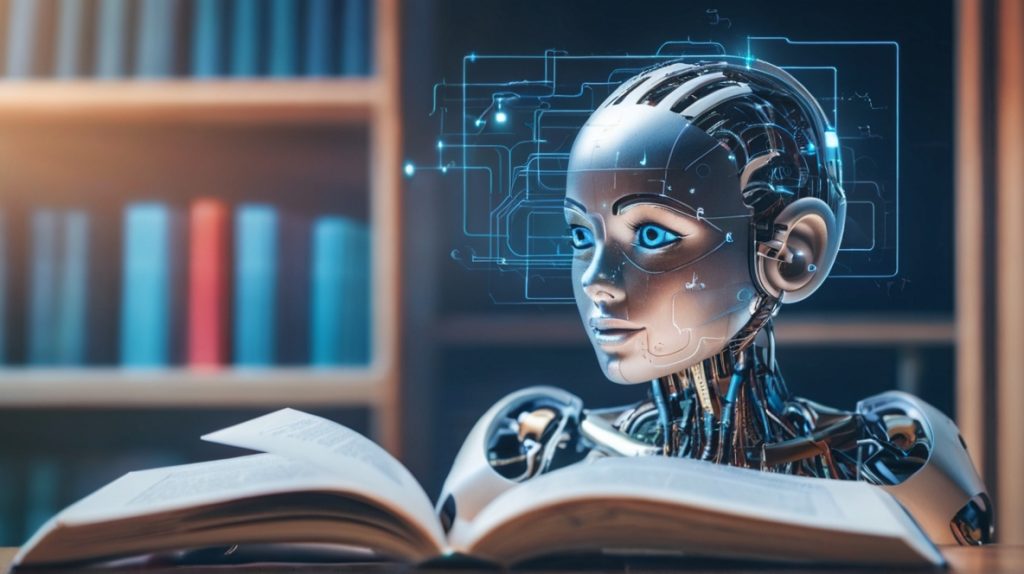
Moreover, AI-powered language translation tools could break down language barriers, enabling students from around the world to access high-quality educational resources, regardless of their native tongue.
A report by the Organization for Economic Co-operation and Development (OECD) titled “Trends Shaping Education 2022” highlights the potential of AI in personalizing education and providing adaptive learning experiences [4]. The report suggests that AI-powered systems could help identify and address individual learning needs, ultimately leading to improved student outcomes and increased engagement.
AI and the Future of Transportation
The transportation industry is poised for a significant overhaul as AI continues to advance. One of the most visible applications of AI in this domain is the development of autonomous vehicles, which have the potential to revolutionize the way we commute and travel.
Imagine a future where self-driving cars have become the norm, reducing the risk of accidents caused by human error and alleviating traffic congestion through optimized routing and coordination. This could lead to a significant reduction in emissions, improved mobility for individuals with disabilities, and a more efficient use of transportation infrastructure.
Beyond autonomous vehicles, AI could also optimize logistics and supply chain management, enabling real-time tracking and routing of goods, predictive maintenance of vehicles and infrastructure, and seamless integration of multiple modes of transportation.
In the realm of public transportation, AI-powered systems could analyze ridership patterns, anticipate demand fluctuations, and dynamically adjust schedules and routes to provide a more efficient and convenient service for commuters.

A report by the World Economic Forum titled “Reshaping the Future: Mobility, Logistics and the Delivery of Tomorrow” highlights the potential of AI in transforming transportation and logistics [5]. The report suggests that AI-powered systems could optimize supply chains, reduce transportation costs, and improve safety and sustainability in the transportation sector.
AI and the Future of Cybersecurity
As technology continues to permeate every aspect of our lives, the importance of cybersecurity cannot be overstated. AI has the potential to play a crucial role in safeguarding our digital infrastructure and protecting sensitive data from malicious actors.
AI-driven threat detection and response systems could monitor network traffic, identify anomalies, and respond to potential threats in real-time, providing a level of protection that would be impossible to achieve through human monitoring alone.
Furthermore, AI could be used to identify and patch vulnerabilities in software and systems before they can be exploited by cybercriminals. By analyzing vast amounts
of code and identifying patterns that may indicate potential weaknesses, AI could help to proactively address security flaws and reduce the risk of data breaches.
In addition to its defensive applications, AI could also be leveraged for offensive cybersecurity purposes, such as identifying and neutralizing advanced persistent threats (APTs) and other sophisticated cyber attacks.
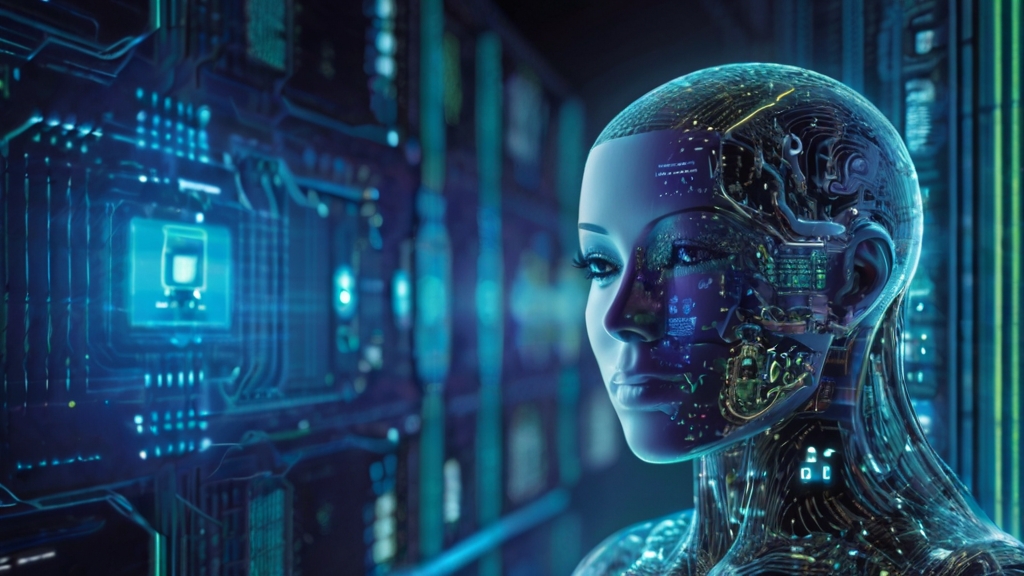
A report by Capgemini titled “Reinventing Cybersecurity with Artificial Intelligence” highlights the potential of AI in enhancing cybersecurity [6]. The report suggests that AI-powered systems can improve threat detection, automate response, and provide predictive capabilities, ultimately leading to more robust and proactive cybersecurity measures.
AI and the Future of Entertainment
The entertainment industry has already begun to embrace the potential of AI, and the future promises even more immersive and personalized experiences for audiences.
In the realm of film and television, AI-driven content creation tools could revolutionize the way stories are conceived, written, and produced. AI algorithms could analyze audience preferences, identify popular themes and narratives, and even generate script outlines and character profiles tailored to specific demographics.
AI-powered virtual reality (VR) and augmented reality (AR) experiences could transport audiences to fully immersive digital worlds, blurring the lines between reality and fiction. Imagine being able to step into the shoes of your favorite movie character or explore fantastical landscapes that defy the laws of physics.
In the world of gaming, AI could provide more realistic and adaptive gameplay experiences. AI-driven non-player characters (NPCs) could respond dynamically to player actions, creating a sense of unpredictability and challenge that would keep gamers engaged and entertained.
Moreover, AI could be used to generate personalized game content, tailoring the difficulty level, objectives, and even the narrative to match the individual player’s preferences and skill level.
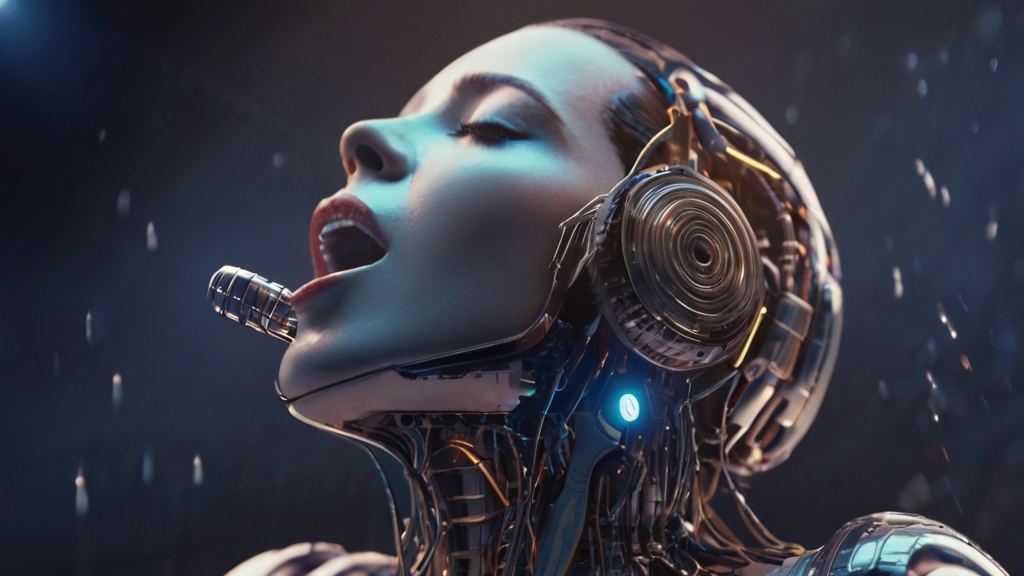
A report by Deloitte titled “Artificial Intelligence: A Promising Future in Media and Entertainment” highlights the potential of AI in revolutionizing the entertainment industry [7]. The report suggests that AI can be leveraged for content creation, personalization, and immersive experiences, ultimately leading to increased engagement and revenue opportunities for media and entertainment companies.
The Risks and Challenges of AI
While the potential benefits of AI are undeniably vast, it would be remiss not to acknowledge the risks and challenges that accompany this rapidly evolving technology. As with any transformative innovation, the widespread adoption of AI presents a multitude of ethical, legal, and societal considerations that must be carefully navigated.
Ethical Concerns
One of the most pressing concerns surrounding AI is the potential for bias and discrimination. AI systems are trained on vast datasets, which can inadvertently reflect and perpetuate existing biases present in society. If these biases are not adequately addressed during the training process, AI algorithms could make decisions that discriminate against certain groups based on factors such as race, gender, or socioeconomic status.
Moreover, the increasing reliance on AI in decision-making processes raises questions about accountability and transparency. As AI systems become more complex and opaque, it may become increasingly difficult to understand how they arrive at specific decisions or recommendations. This lack of transparency could undermine public trust in AI and hinder our ability to identify and rectify potential errors or biases.
Another ethical concern revolves around the potential impact of AI on privacy and personal liberties. As AI systems become more adept at collecting, analyzing, and interpreting vast amounts of personal data, there is a risk that this information could be misused or exploited, leading to invasions of privacy and potential infringements on individual freedoms.
A study published in the journal Nature Machine Intelligence highlights the potential for bias in AI systems, suggesting that these biases can be amplified and perpetuated by the algorithms used in AI systems [8]. The study emphasizes the need for rigorous testing and auditing of AI systems to identify and mitigate potential biases.

Legal and Regulatory Challenges
The rapid pace of AI development has outstripped the legal and regulatory frameworks designed to govern its responsible use. As AI systems become more prevalent and influential, there is a pressing need for comprehensive legislation and regulatory frameworks that can address issues such as data privacy, algorithmic transparency, and liability for AI-driven decisions.
One of the key challenges in this domain is striking the right balance between fostering innovation and protecting the rights and interests of individuals and society as a whole. Overly restrictive regulations could stifle the development and adoption of AI, while a lack of adequate regulation could lead to unintended consequences and potential harm.
Moreover, the global nature of AI raises challenges in terms of harmonizing legal and regulatory approaches across different jurisdictions and geopolitical regions. Collaboration and cooperation between nations will be crucial in ensuring that AI is developed and deployed in a responsible and ethical manner, regardless of geographic boundaries.
A report by the European Commission titled “Ethics Guidelines for Trustworthy AI” provides a framework for the responsible development and deployment of AI systems [9]. The report emphasizes the importance of adhering to ethical principles such as respect for human autonomy, prevention of harm, fairness, and explicability.
Socioeconomic Impacts
The widespread adoption of AI is likely to have far-reaching socioeconomic implications, particularly in the realm of employment and labor markets. As AI automates various tasks and processes, there is a risk that certain jobs and industries may be disrupted or even rendered obsolete, leading to potential job losses and economic displacement.
While new jobs and industries are likely to emerge as a result of AI, there is a concern that the pace of change may outstrip the ability of workers and educational systems to adapt and acquire the necessary skills for these new roles. This skills gap could exacerbate existing inequalities and contribute to further economic polarization within societies.
Additionally, the concentration of AI expertise and resources within a small number of tech giants and nations could lead to concerns about monopolistic control over this transformative technology, potentially exacerbating existing power imbalances and perpetuating economic disparities on a global scale.
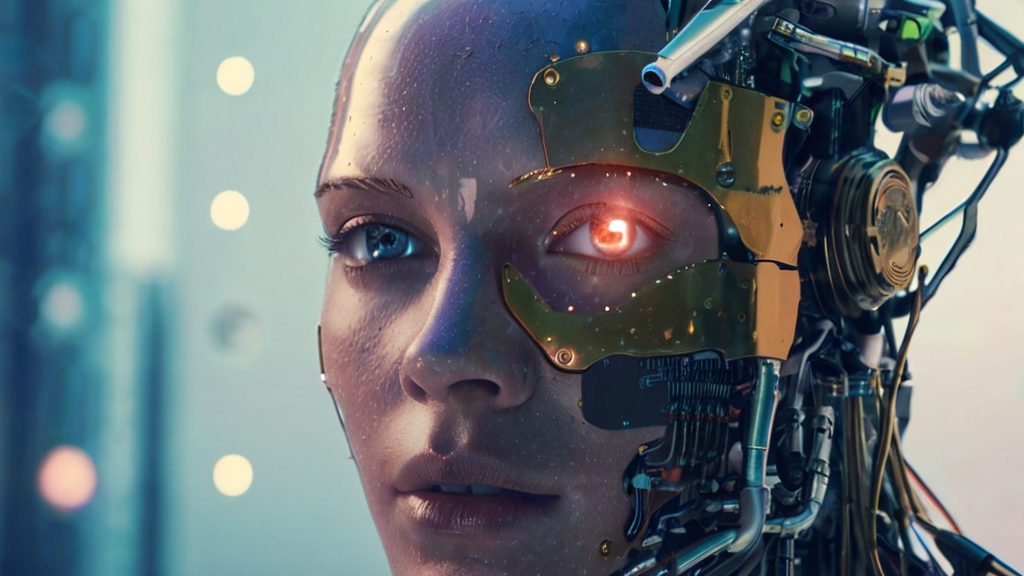
A report by the International Labour Organization (ILO) titled “The Future of Work in the Age of Artificial Intelligence” highlights the potential impact of AI on employment and labor markets [10]. The report suggests that while AI may lead to job displacement in certain sectors, it could also create new job opportunities and increase productivity and economic growth, provided that appropriate policies and measures are in place to support workers and facilitate the transition to new roles.
Environmental Concerns
As AI systems become more ubiquitous and resource-intensive, there are valid concerns about their environmental impact. The training and operation of large-scale AI models require immense computational power and energy consumption, contributing to greenhouse gas emissions and potentially exacerbating the challenges posed by climate change.
Moreover, the extraction and processing of the raw materials required to manufacture the hardware and infrastructure that supports AI systems can have significant environmental consequences, including resource depletion, habitat destruction, and pollution.
Addressing these environmental concerns will require a concerted effort to develop more energy-efficient AI systems, leverage renewable energy sources, and prioritize sustainable practices throughout the entire AI lifecycle, from raw material extraction to end-of-life disposal.
A study published in the journal Nature Communications highlights the environmental impact of AI, suggesting that the energy consumption and carbon footprint of AI systems could become a significant concern as the technology continues to advance [11]. The study emphasizes the need for sustainable practices and the development of more energy-efficient AI systems to mitigate the environmental impact.
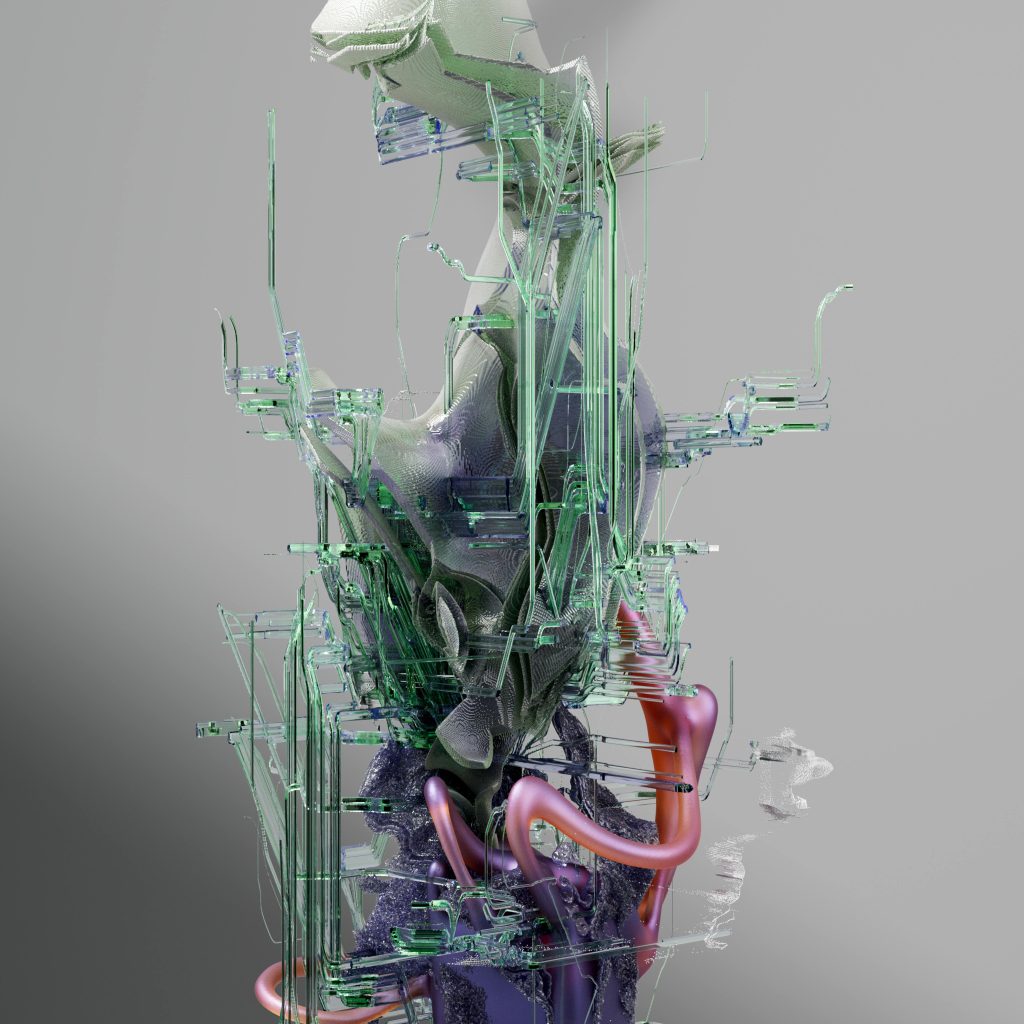
The Need for Responsible AI Development
Given the risks and challenges associated with AI, it is imperative that the development and deployment of this technology be guided by a framework of responsible innovation. This framework should prioritize ethical considerations, transparency, accountability, and a commitment to mitigating potential negative impacts on individuals, societies, and the environment.
Collaboration between stakeholders, including researchers, policymakers, industry leaders, and civil society organizations, will be crucial in shaping the responsible development and deployment of AI. By fostering open dialogue, sharing best practices, and establishing clear guidelines and standards, we can work towards harnessing the transformative potential of AI while minimizing its risks and addressing its challenges.
Moreover, it is essential to prioritize public education and awareness around AI, empowering individuals to engage with this technology in an informed and responsible manner. By demystifying AI and fostering a deeper understanding of its capabilities, limitations, and implications, we can cultivate a more nuanced and inclusive dialogue around this transformative technology.
A report by the World Economic Forum titled “Shaping the Future of Artificial Intelligence” highlights the importance of responsible AI development and provides a framework for governance and collaboration [12]. The report emphasizes the need for a multi-stakeholder approach, ethical principles, and international cooperation to ensure the responsible and beneficial development and deployment of AI.

AI in Bangladesh
Growing Interest and Adoption:
Bangladesh, as a rising economy in South Asia, is witnessing increased interest in AI. Industries, government agencies, and individuals are recognizing its potential.
Opportunities:
Economic Growth: AI can contribute to economic growth by enhancing productivity, efficiency, and innovation.
Healthcare: AI applications can improve diagnostics, patient care, and disease management.
Agriculture: AI-driven precision agriculture can optimize crop yield and resource utilization.
Education: AI can personalize learning experiences and facilitate skill development.
Public Services: AI can enhance government services and decision-making.
Challenges and Considerations:
Algorithmic Biases: Ensuring fairness and avoiding biases in AI algorithms is crucial.
Data Privacy: Protecting user data and ensuring privacy are essential.
Ethics: Developing ethical guidelines for AI use is necessary.
Ethics: Developing ethical guidelines for AI use is necessary.
Regulations: Clear regulations are needed to govern AI applications.
Skilling Workforce: Building a skilled AI workforce is vital for sustainable growth.
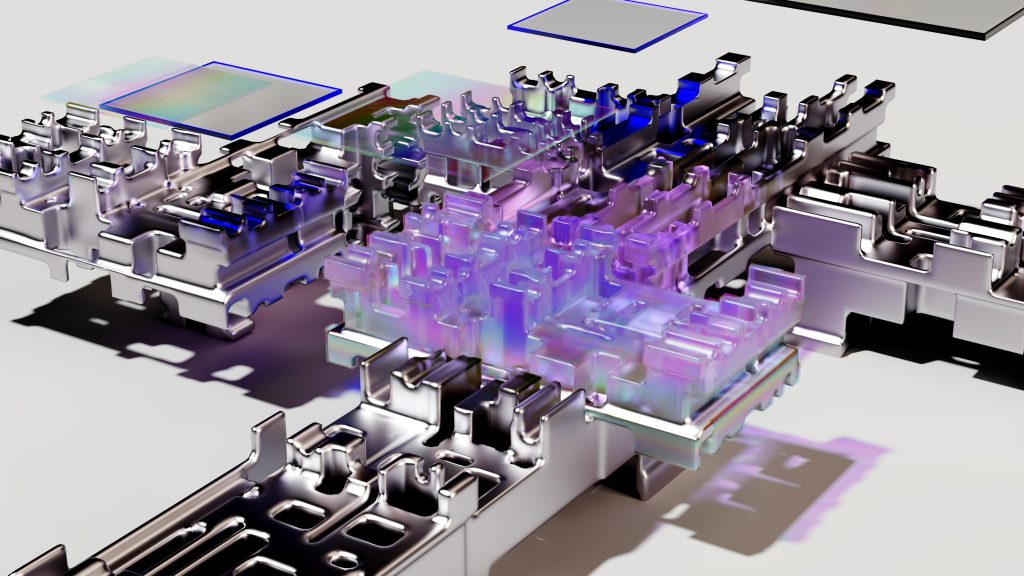
National Strategy for AI in Bangladesh:
- Bangladesh has outlined a national strategy for AI, focusing on six pillars:
- Research and development
- Skilling and reskilling of AI workforce
- Data and digital infrastructure
- Ethics, data privacy, security, and regulations
- Funding and accelerating AI start-ups
- Industrialization of AI technologies.
AI is revolutionizing various sectors, including healthcare, agriculture, manufacturing and public services. The adoption of AI is not limited to corporations; it is gradually permeating different domains. AI is gradually becoming an integral part of Bangladesh’s development journey. While it presents immense opportunities, addressing challenges and fostering responsible AI adoption are equally important for sustainable growth.
As we stand on the precipice of an AI-driven future, it is clear that this technology holds immense promise and potential for transforming nearly every aspect of our lives. From healthcare and education to transportation and entertainment, AI has the capacity to unlock new frontiers of innovation and efficiency, ushering in a new era of human progress and advancement.
However, as with any transformative technology, the widespread adoption of AI is not without its risks and challenges. Ethical concerns, legal and regulatory hurdles, socioeconomic impacts, and environmental considerations must be carefully navigated to ensure that the benefits of AI are realized in a responsible and equitable manner.
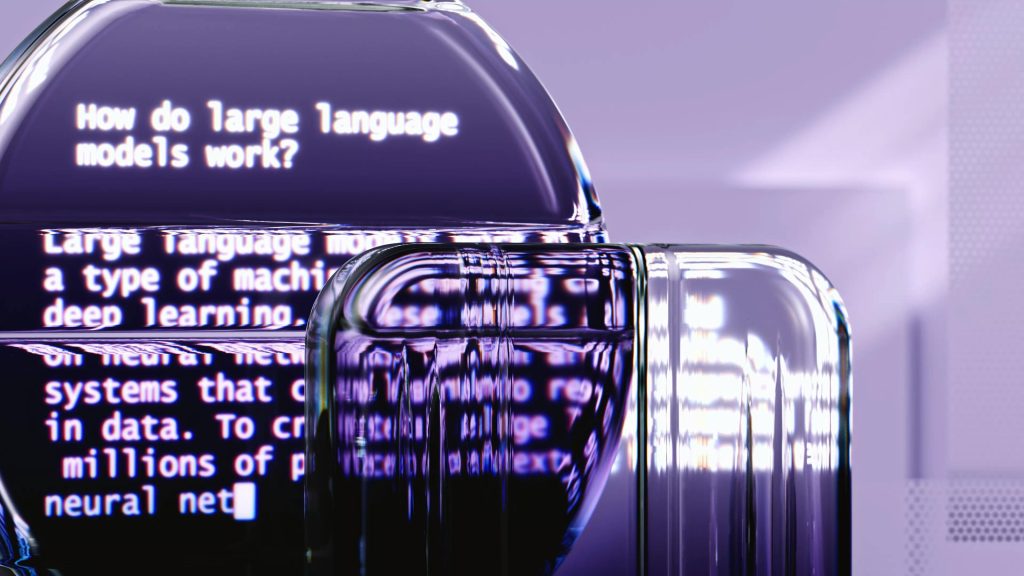
It is our collective responsibility, as researchers, policymakers, industry leaders, and members of society, to shape the future of AI in a way that prioritizes ethical considerations, transparency, accountability, and a commitment to mitigating potential negative impacts. By fostering collaboration, open dialogue, and a shared understanding of the implications of AI, we can work towards harnessing its transformative potential while addressing its risks and challenges.
The future of AI is not a distant prospect; it is unfolding before our very eyes, and it is up to us to shape it in a way that serves the greater good of humanity and our planet. By embracing a spirit of responsible innovation and a commitment to ethical and sustainable practices, we can unlock the true potential of AI and usher in a future that is both technologically advanced and socially responsible.
While the potential benefits of AI are vast and exciting, it is crucial that we approach its development and deployment with caution and responsibility. The risks and challenges associated with AI, such as ethical concerns, legal and regulatory issues, socioeconomic impacts, and environmental considerations, must be taken seriously and addressed proactively.
It is imperative that we establish robust governance frameworks, ethical guidelines, and regulatory mechanisms to ensure that AI is developed and deployed in a transparent, accountable, and responsible manner. Collaboration between stakeholders, including researchers, policymakers, industry leaders, and civil society organizations, will be crucial in achieving this goal.
Moreover, It is believed that public education and awareness around AI should be a priority. By demystifying AI and fostering a deeper understanding of its capabilities, limitations, and implications, we can cultivate a more informed and inclusive dialogue around this transformative technology. This, in turn, will empower individuals to engage with AI in a responsible and meaningful way.

Ultimately, the future of AI is not something that should be left solely in the hands of a few powerful entities. It is a collective responsibility, and we must all play an active role in shaping it. By embracing a spirit of responsible innovation, ethical considerations, and a commitment to sustainability, we can harness the transformative potential of AI while mitigating its risks and ensuring that it serves the greater good of humanity and our planet.
References:
[1] World Economic Forum, “The Future of Jobs Report 2020,” https://www.weforum.org/reports/the-future-of-jobs-report-2020
[2] Zhavoronkov, A., et al. “Deep learning enables rapid identification of potent DDR1 kinase inhibitors.” Nature Biotechnology 37.9 (2019): 1038-1040.
[3] Ardila, D., et al. “End-to-end lung cancer screening with three-dimensional deep learning on low-dose chest computed tomography.” Nature Medicine 25.6 (2019): 954-961.
[4] OECD, “Trends Shaping Education 2022,” https://www.oecd.org/education/trends-shaping-education-22187062.htm
[5] World Economic Forum, “Reshaping the Future: Mobility, Logistics and the Delivery of Tomorrow,” https://www.weforum.org/reports/reshaping-the-future-mobility-logistics-and-the-delivery-of-tomorrow
[6] Capgemini, “Reinventing Cybersecurity with Artificial Intelligence,” https://www.capgemini.com/resources/reinventing-cybersecurity-with-artificial-intelligence
[7] Deloitte, “Artificial Intelligence: A Promising Future in Media and Entertainment,” https://www2.deloitte.com/us/en/pages/technology-media-and-telecommunications/articles/artificial-intelligence-in-media-and-entertainment.html
[8] Mehrabi, N., et al. “A survey on bias and fairness in machine learning.” ACM Computing Surveys 54.6 (2021): 1-35.
[9] European Commission, “Ethics Guidelines for Trustworthy AI,” https://digital-strategy.ec.europa.eu/en/library/ethics-guidelines-trustworthy-ai
[10] International Labour Organization (ILO), “The Future of Work in the Age of Artificial Intelligence,” https://www.ilo.org/global/topics/future-of-work/publications/research-papers/WCMS_663518/lang–en/index.htm
[11] Strubell, E., et al. “Energy and policy considerations for deep learning in NLP.” arXiv preprint arXiv:1906.02243 (2019).
[12] World Economic Forum, “Shaping the Future of Artificial Intelligence,” https://www.weforum.org/projects/shaping-the-future-of-artificial-intelligence
Copyright©dhaka.ai
tags: Artificial Intelligence, Ai, Dhaka Ai, Ai In Bangladesh, Ai In Dhaka, OpenAI, ChatGPT, Meta, Google, Claude, Future of AI



